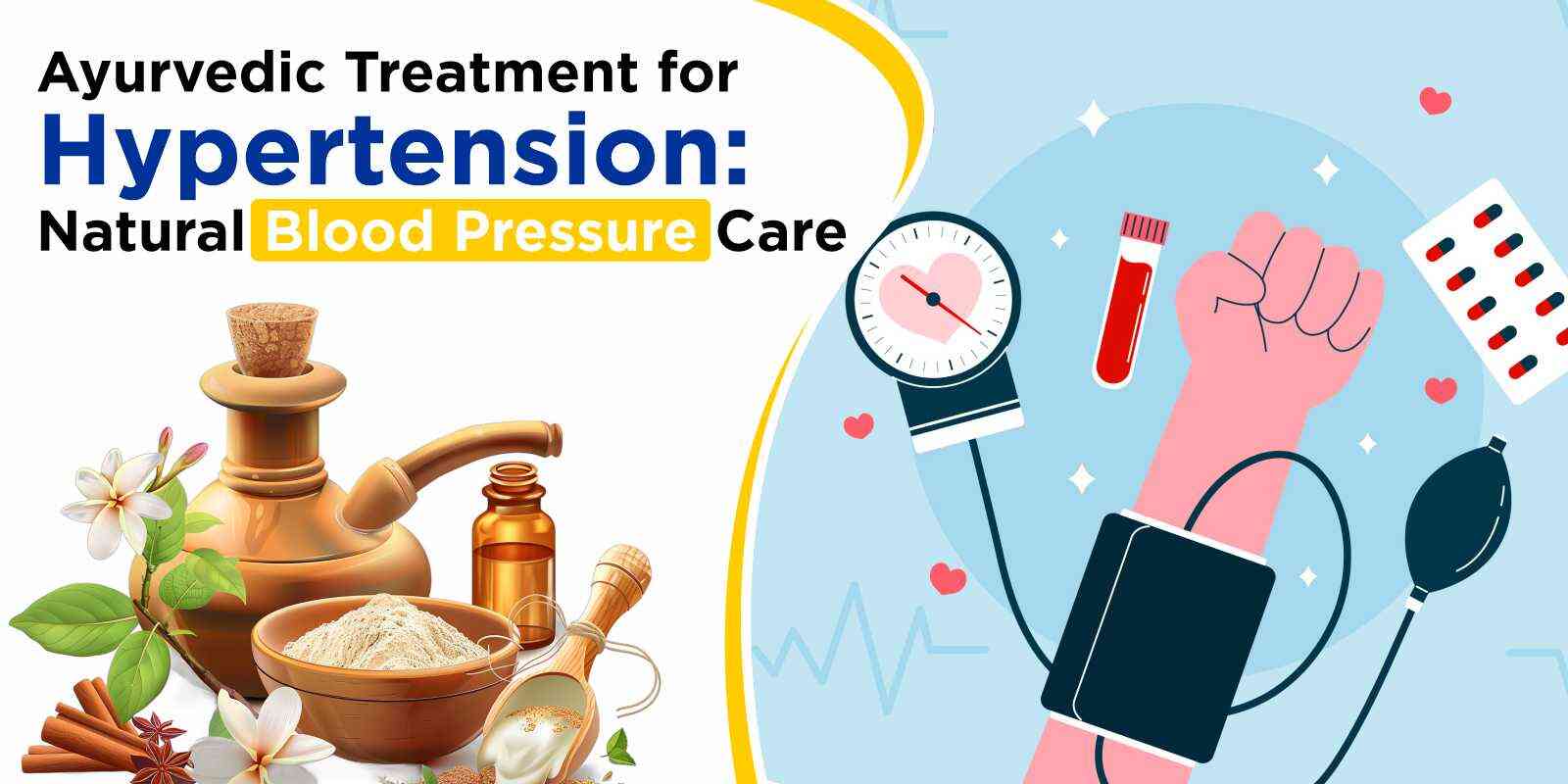
Vyanabala Vaishamya i.e. Hypertension; it is a chronic illness of the body that elevates the levels of blood pressure abnormally because of certain causes. It pumps up the speed of blood flow that hits forcibly on the walls of arteries and veins. The force enforced narrows the arteries leading to the condition of high blood pressure and eventually, heart or kidney failure. The Hypertension treatment in Ayurveda states that an affected person can continue to live with or without the symptoms of Vyanabala Vaishamya (Hypertension) until some serious complication doesn’t take place in the body.
The excerpt from Ayurvedic texts suggests that the unmanaged levels of blood pressure can aggravate the problems and may result in a silent attack, stroke, blurred vision, kidney failure and heart failure. It is a silent killer that obstructs the functioning of the human body all at once. It is the same reason why hypertension is known to be the second major cause of kidney diseases. Thankfully, the Ayurvedic treatment for Hypertension provides stability and free from all the complications that occur because of Vyanabala Vaishamya. The normal levels of blood pressure lie below the range of 120/80 (systolic/ diastolic). Normal blood pressure would be less than 120/80 but above 90/60 {systolic/diastolic}.
Now let us discuss high blood pressure through the eyes of Ayurvedic treatment for hypertension. Ayurveda is an ancient remedy that provides a natural or herbal cure to revive the functioning of any organ. Similarly, in the case of high blood pressure; the management of blood flow is circulated with an adequate adaptation of food & beverages and lifestyle changes.
As discussed above that many patients can continue their lifestyle with high blood pressure unknowingly. Still, a few symptoms can help the patient in understanding the abnormalities happening in the body:
The seriousness of the disorder can be identified only when the Ayurvedacharya finds out the type of hypertension. Indeed, different types of hypertension affect differently on people. Following are these types:
Now let us discuss the problem of high blood pressure through the eyes of Ayurveda. The excerpt of Ayurvedic texts says that the change in living status and dietary habits have added stress and strain in the lives that are affecting the livelihood of people in numerous ways. Though certain Ayurvedic medicines can help in prevention, such as:
As for kidney patients, hypertension can be a serious complication. It will compel the kidneys to put an extra force while filtering the blood. The forcible act may result in kidney failure at some point in life.
What can be the other preventive measures?
Prevention is better than cure. If you are not a patient of high blood pressure or even if you are then you can combat the problem by following easy simple things in your life, such as:
So, this was all about the Ayurvedic management of hypertension. The bottom line answer to any disease management should only be Ayurveda. Karma Ayurveda Hospital is standing with the said belief since 1937 and has cured more than 1,50,000 patients to date without the help of artificial processes. Hypertension can be a serious threat to the functioning of the heart and kidneys if continued untreated.
Disclaimer:- The purpose of the content on this page is not to substitute any professional medical advice but to only provide information to the reader. If the reader is a kidney patient, we recommend not making any diet or routine changes without consulting his/her doctor or dietitian. For appointments, call at our 24×7 helpline: +91-9821929797 or visit www.karmaayurvedahospital.com.
"Ayurveda is not just a system of medicine; it's a way of life. Connect with us to embrace a lifestyle that nurtures your body, mind, and soul."

Certificate no- AH-2023-0186
JAN 05,2023-JAN 04,2026